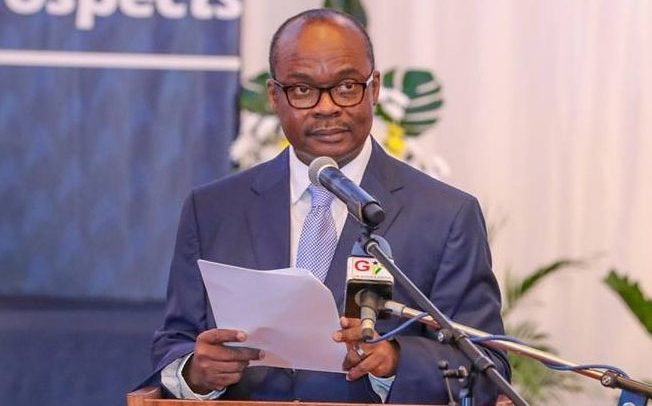- Analysts remain divided over the likely outcome
The Monetary Policy Committee (MPC) of the Bank of Ghana will, once again, be confronted with a difficult decision regarding determination of the policy rate for the next few months, as economic conditions are not favourable for the regulator to reduce the rate to push government’s expansionary policy; whereas increasing it will also incur the business community’s wrath.
For the fifth consecutive time, the Committee has maintained the rate at 14.5 percent over heightened risk to inflation, ballooning public debt, a depleting fiscal situation, slow economic growth among others, which have all been exacerbated by the second wave of pandemic experienced since beginning of the year.
The Monetary Policy Committee’s hope of seeing inflation come down was blighted by the rate for February 2020, which saw inflation climb to 10.3 percent from the 9.9 percent recorded a month earlier – indicating that it has moved outside the medium-term target band of 6-10 percent.
At its last meeting, the MPC said it projects headline inflation will return to target in the second quarter of 2021; adding that risks to inflation in the near-term are broadly contained, but short to medium-term risks emanating from the fiscal expansion and rising crude oil prices are emerging. This moved the Committee to maintain the rate where it is. So, taking inflation into consideration, the possibility of a cut in the rate is unlikely.
With the fiscal situation, it is obvious that it won’t get any better soon; especially as the pandemic still rages on. The 2021 budget shows the fiscal deficit for 2020 hit 11.7 percent, exceeding the revised target by 30 basis points. And from the look of things, it will further worsen as government still has pandemic-related expenditure to make. In fact, the MPC admitted in its last meeting that the prospects of a sharp fiscal correction in 2021 looks unlikely amid the second wave of the pandemic, which will require additional spending to provide testing, vaccines, etc.
Unfortunately, government will have to resort to borrowing to take care of these expenditures – a move that will further drive the public debt upward. Currently, public debt has hit over 76 percent of GDP as of December 2020, and is expected to climb higher with the pandemic lingering. All these reasons make it unfavourable for a policy rate cut.
Dean of the University of Ghana Business School, Professor John Gatsi, thinks in a similar fashion – saying if the economic indicators are to be used as the sole basis for decision-making, then the policy rate may be increased or, at worst, be maintained; as a decrease will have repercussions on the economy.
“Policy rate should be reduced or increased based on the direction of economic indicators. And the current indicators do not point to a reduction. Of course, the Bank of Ghana can take a decision to reduce it, but that will not be informed by economic development. Some of the reductions the Committee made in the past was just a sacrifice to contain COVID-19; but we cannot continue like that for a long time because there is a cost to that,” he said in an interview with the B&FT ahead of the announcement today.
He however, maintained that he does not expect any reduction in the policy rate – especially if the current economic indicators are taken into consideration.
“There are two considerations. One consideration is about whether we still see monetary policy as being flexible to manage COVID-19. If that is the case, the best one can do to accommodate COVID-19 is to maintain the policy rate.
“However, if the belief is that for the greater part of 2020 monetary policy has been flexible for the containment of COVID-19 and is time to free monetary policy to follow the direction of economic indicators – that is disrupted fiscal development, underperformance of revenue, risk of expenditure to fiscal management, risk of high debt to fiscal management – then we can see the environment is not conducive for maintaining the policy rate. Rather, it actually provides a space for increasing the policy rate.
“The Committee should indicate whether they are in for more accommodation of COVID-19 for which they will maintain the policy rate. Other than that, the development clearly shows an upward direction of the rate,” he said.
He further stated that the 2021 budget gives indication that economic conditions do not make it convenient for a policy rate cut.
“The budget gives indication as to the economic environment: whether there is risk to fiscal policy management, whether there is risk to revenue mobilisation, whether the over-borrowing has interest payment risk, and whether the tax measures have risk to inflation. And the budget has clearly demonstrated that there is risk to inflation in the medium-term; there is risk to monetary policy and there is risk to fiscal policy. These are enough reasons to tilt the rate upward,” he said.
But a forecast from Tesah Capital, an investment firm, rather points to a marginal reduction of the rate to 14 percent, as it thinks the authorities may want to support economic activity.
“The Monetary Policy Committee noted in their statement in January that they were hopeful inflation would trend toward its target range of 6-10 percent in Q2-2020, and this could allow them to ease monetary policy to support economic activity, which remains under threat from the second wave of coronavirus infections in Ghana. Going by this expectation and the analysis done, we expect that the policy rate will be reduced marginally to 14 percent in order to boost economic activity on the backdrop of low threat to price stability,” it said.
The Economist Intelligence Unit (EIU) also said in its February country report that it expects a small interest-rate cut in 2021, as inflation is forecast to stay within the central bank’s 6-10 percent target range over the year, and the authorities remain keen to support access to credit.










